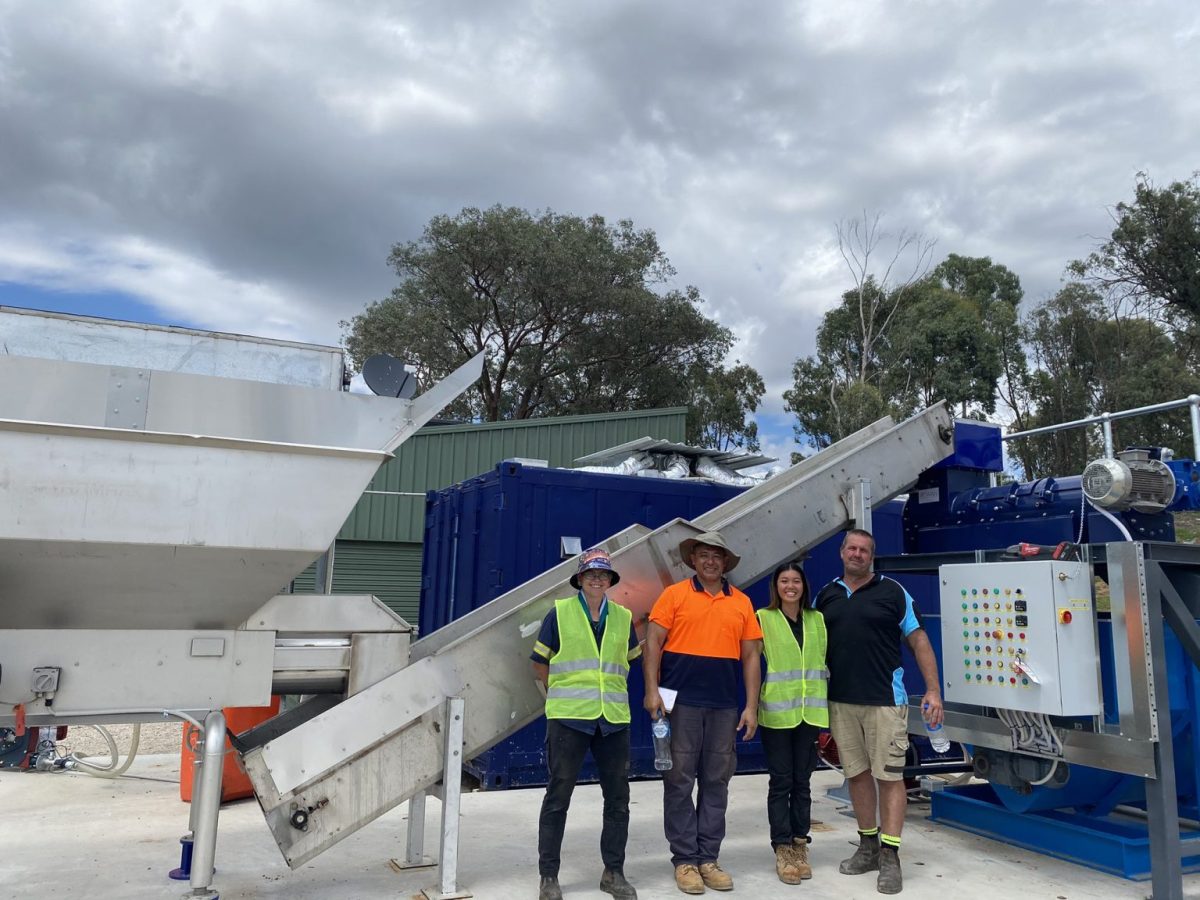For too long, waste management has meant landfill. We simply throw our rubbish into a truck, and it’s dumped in a giant pile on the outskirts of town. It’s not only unsustainable, it’s a waste of valuable resources.
GOTERRA has developed a radical new model for processing waste that is decentralised, and regenerative. The innovative ingredient is bugs, which are used to turn waste into a valuable resource. And the Albury City Council has put its hand up to be the first LGA in Australia to process waste using insects at a commercial site.
The system involves a container-sized robotic machine which can be housed on-site for facilities that have a high output of waste, and it can also operate as a municipal waste solution for remote towns, or those that don’t have their own waste management facilities.
The Albury site has received its first delivery of food organics from Veolia, and is setup to process food waste from Woolworths, retail, hospitality, community operators and food producers from the region.
The company raised an $8 million Series A round in 2020, with investors including Giant Leap, Grok Ventures, Tenacious Ventures and Flying Fox Ventures.
GOTERRA systems can process 5 tonnes of waste a day, handling everything from food waste, all the way through to industrial and agricultural waste streams.
The hardest working part of the system are the bugs, or more specifically, black solider fly larvae. They convert food waste into a high-value source of protein and fertiliser in just 12 days.
But that’s not the only innovative part of the model. The business model itself is shaking up an industry that has become complacent about how to handle the ever-growing flow of rubbish from our homes and cities.
GOTERRA’s systems can ‘plug-in’ it to an existing waste supply-chain, or, they can drop-off a machine to your work site. This reduces transportation costs, and further fouling of the waste. Plus, users don’t have to pay for the whole system up-front. They can opt for a subscription model to pay as they go.
It’s a powerful economic model because it reclassifies ‘waste’ into being a valuable ‘resource’. It’s no longer a burden, it’s now creating value.
“We didn’t work tirelessly to settle for just one robotic modular system where maggots eat food waste and create nutritious soil and become insect feed for farm animals. There’s no reason decentralised biotechnology can’t be adopted worldwide in time. We’re getting more advanced by the minute and we have no doubt the seeds we’ve sown today will mean increased sustainability tomorrow.” says founder, Olympia Yarger.

